
Catch up with CDAC Network at Humanitarian Networks & Partnerships Week 2025
Catch up with all CDAC Network’s panel events at Humanitarian Network and Partnerships 2025.

March 2025 Thailand/Myanmar earthquake portal - key messages and resources
Key messages and resources for the humanitarian response to the Myanmar-Thailand March 2025 earthquake.

CDAC Network launches SAFE AI project to establish responsible AI framework for humanitarians
The SAFE AI project focuses on creating clear governance guidelines, building tools to verify AI trustworthiness, ensuring affected communities have a meaningful voice, and working directly with humanitarian organisations to build solutions that address their actual needs.

CDAC Network at Humanitarian Networks & Partnerships Week 2025
Join CDAC Network at Humanitarian Network and Partnerships between 24-28 March 2025.
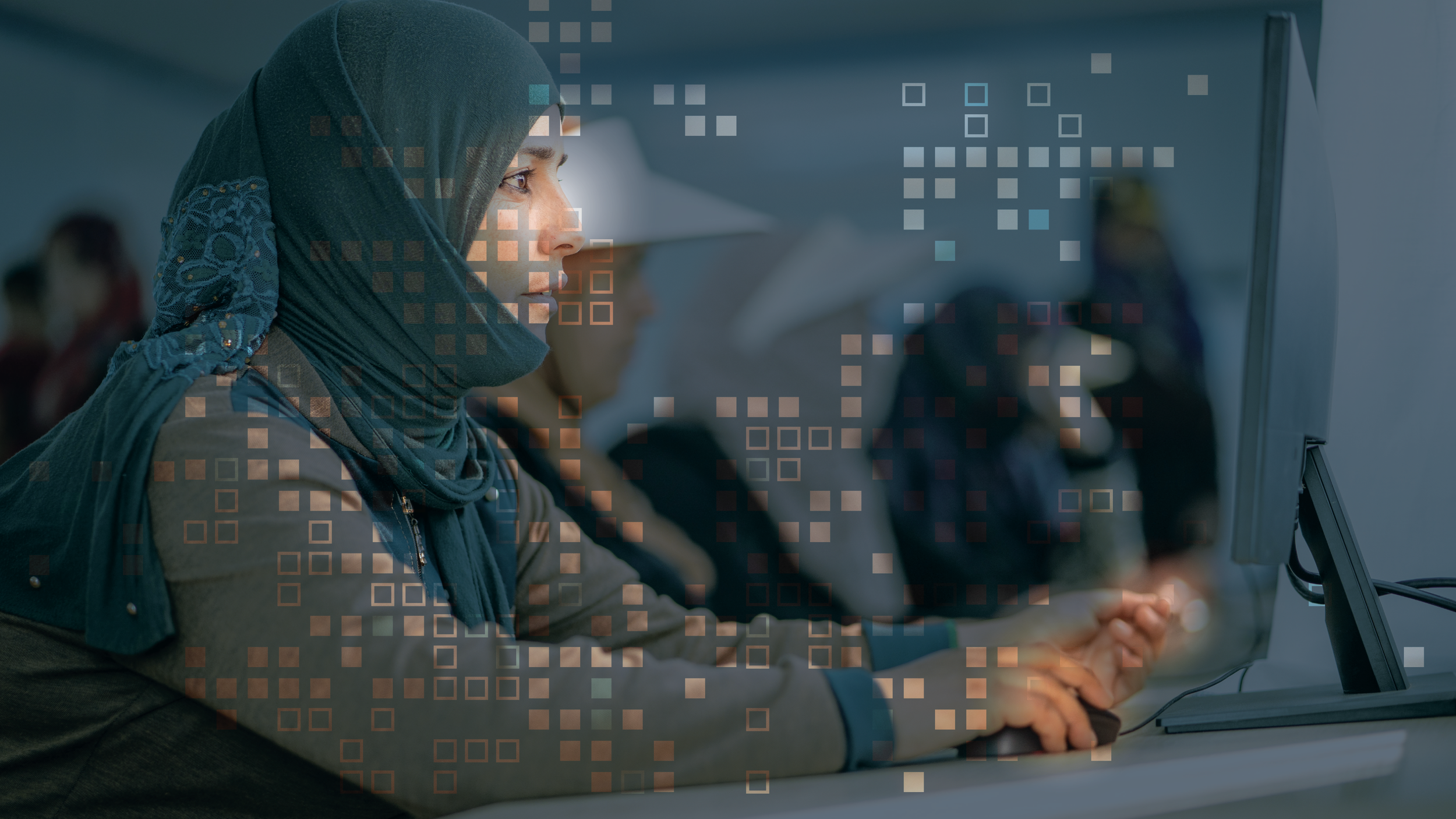
Shift the power in humanitarian data: support the Data Values Advocates Program
The Data Values Advocates Program equips people, especially young people and those from underrepresented communities, with the skills and resources to advocate for equitable, community-centred data systems. Learn how you can get involved!

Join CDAC Network at the 2024 Public Forum – Data, power and participation: towards the ethical adoption of tech
This year’s Public Forum will ask: what could accountable AI design and governance look like? Who controls the data shaping humanitarian action? Whose ethics should guide the take-up of tech in conflicts and crises? What information and tools do crisis-affected communities need to play a central role in decision-making?

Why community engagement is the smart strategy for AI in humanitarian response
Watch the World Summit AI 2024 panel where CDAC’s Executive Director, Helen McElhinney, made the case for deeper community participation in the development and use of artificial intelligence (AI) technologies in humanitarian settings.
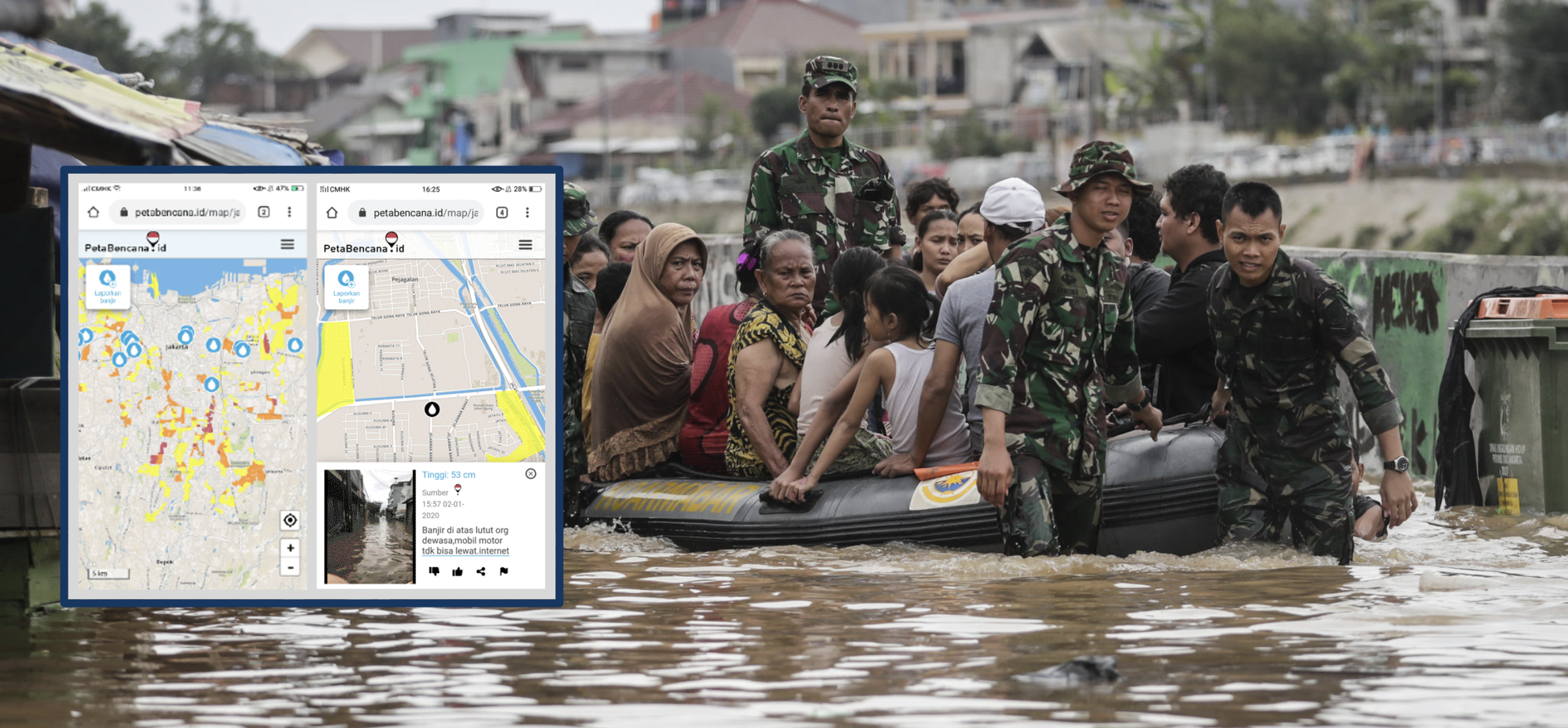
New online course – Community crisis intelligence: elevating community voices with AI
CDAC Network is excited to announce the launch of a new online training course, designed to equip humanitarian professionals with the skills to harness the power of community intelligence and AI to deliver faster, better and more localised humanitarian responses.

What’s AI doing to information airways in conflict and crises?
Generative artificial intelligence is a new dimension to the old problem of disinformation. It has made the issue much more complicated, particularly for people affected by conflict and crises. How should humanitarians respond?
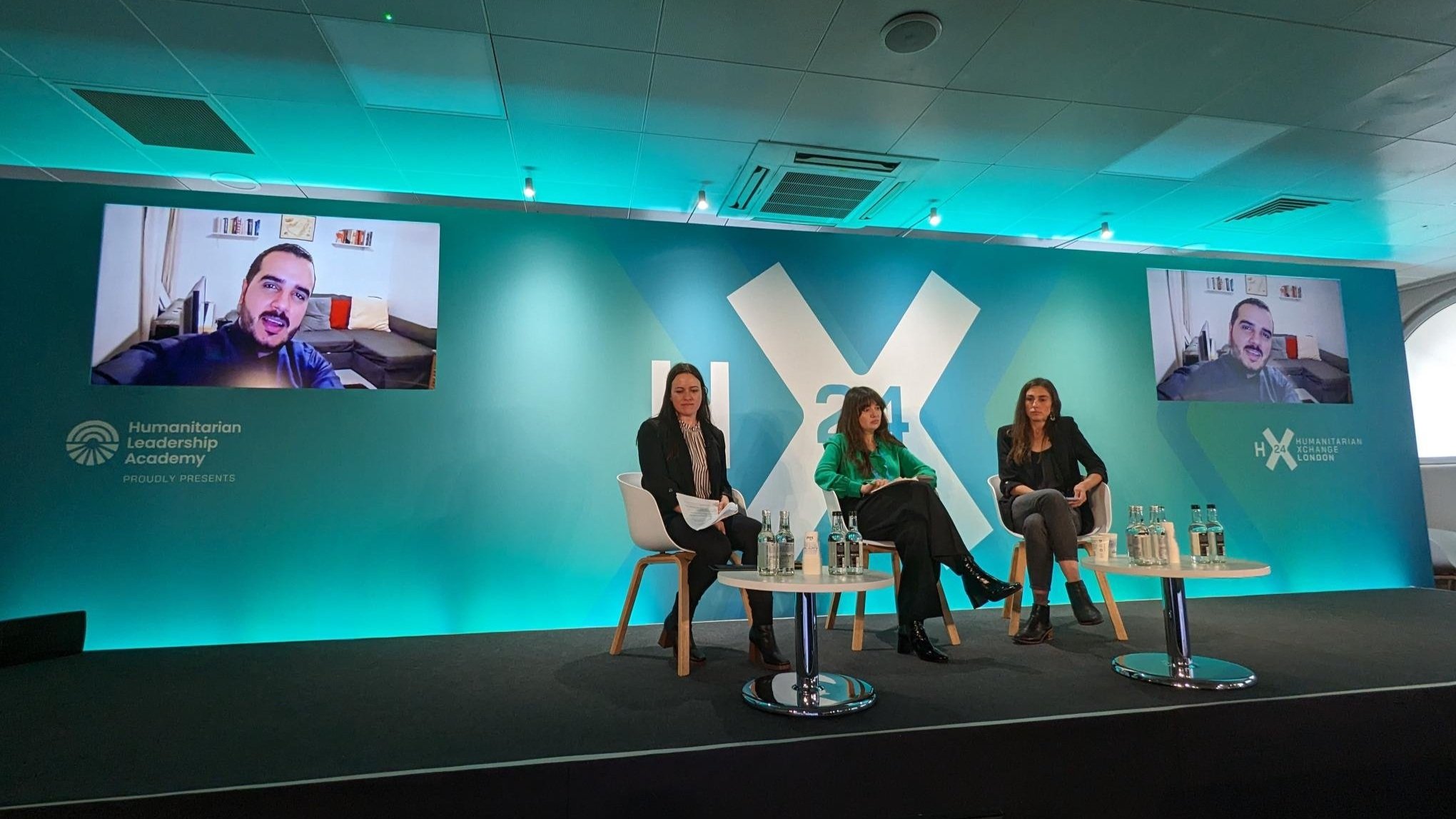
Is truth the first casualty? The role of communication in crisis and humanitarian action
Video and key takeaways from CDAC Network’s panel at Humanitarian Xchange 2024, featuring Ahmed Al Khameri (Chemonics), Annie Slemrod (The New Humanitarian), Meg Sattler (Ground Truth Solutions) and Stijn Aelbers (Internews).
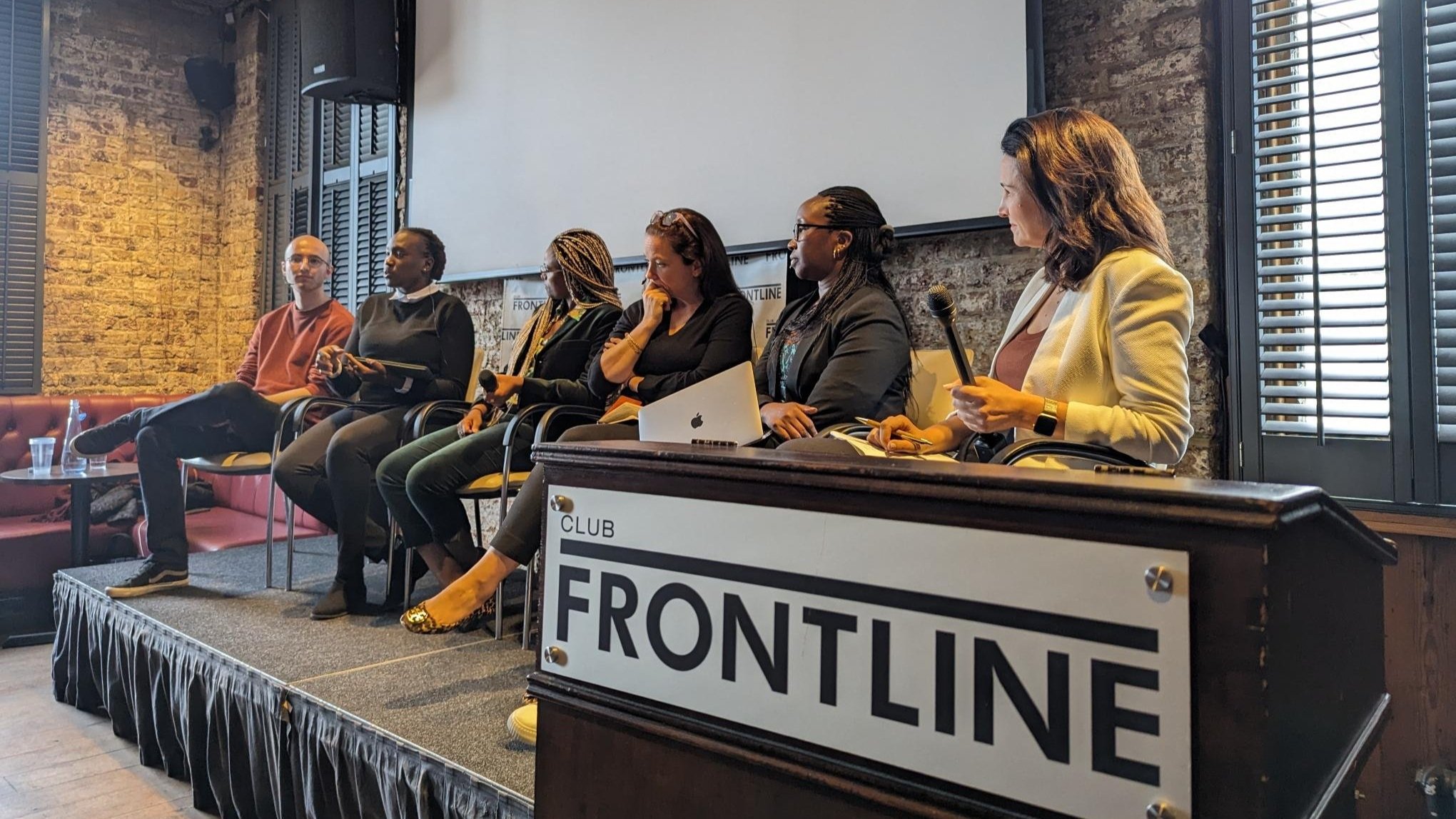
Why we urgently need a humanitarian manifesto for AI
As part of The Alan Turing Institute’s AI UK Fringe in March 2024, CDAC Network hosted an event at London’s Frontline Club to ask: ‘Do we need a humanitarian manifesto for AI?’ Catch up on the videos and key takeaways here, including a keynote from Dr Abeba Birhane.

Do we need a humanitarian manifesto for AI? Join CDAC Network at the Alan Turing Institute’s AI UK Fringe
Register to join CDAC Network at the Alan Turing Institute's AI UK Fringe to discuss whether a humanitarian manifesto for artificial intelligence is needed, and how it could be informd by conflict- and crisis-affected communities.
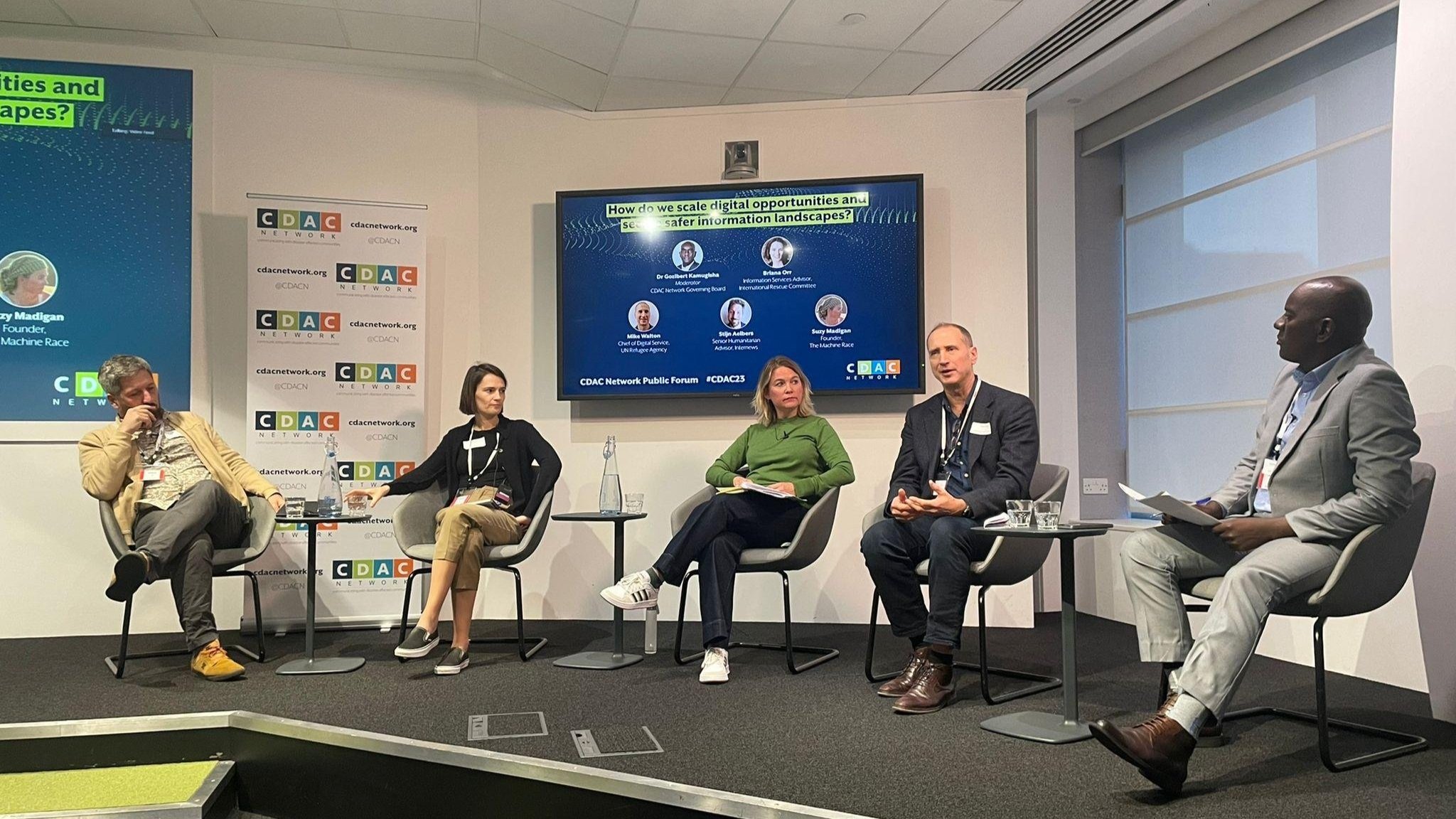
In the age of AI, how do we scale digital opportunities and secure safer information landscapes for people caught in conflict?
Seismic shifts in the digital landscape are reshaping the experience of communication in conflict across the world. What can build resilience to emerging threats to media freedom and trusted communication in conflict? And how can humanitarian principles inform sector take-up of emerging technologies such as AI?
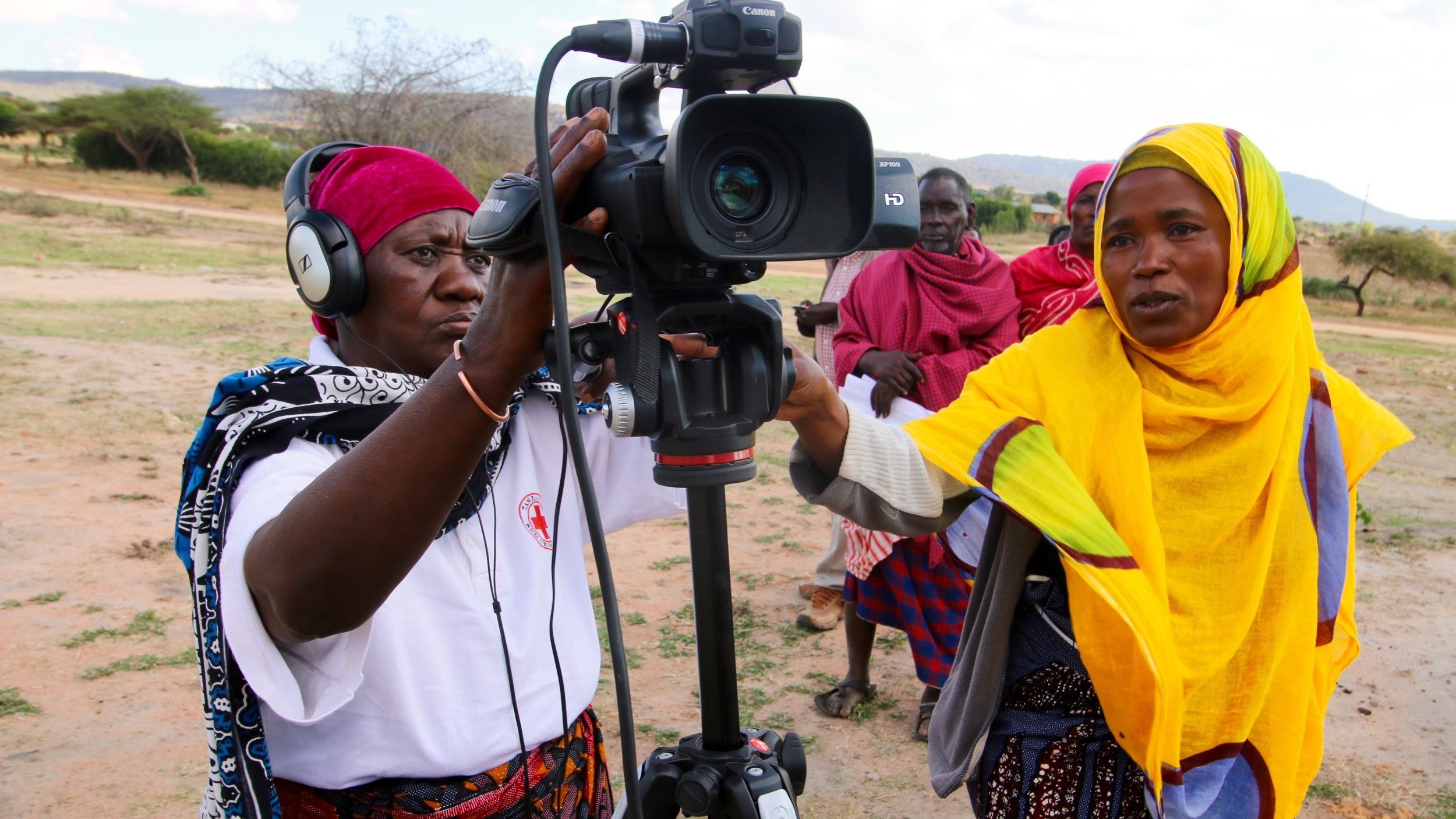
The next level in community-led engagement and accountability: integrating a participatory mixed-methods approach
Photo story: how participatory video methods can be used to centre communities’ voices, perspectives and expertise at every stage of humanitarian programming and response.
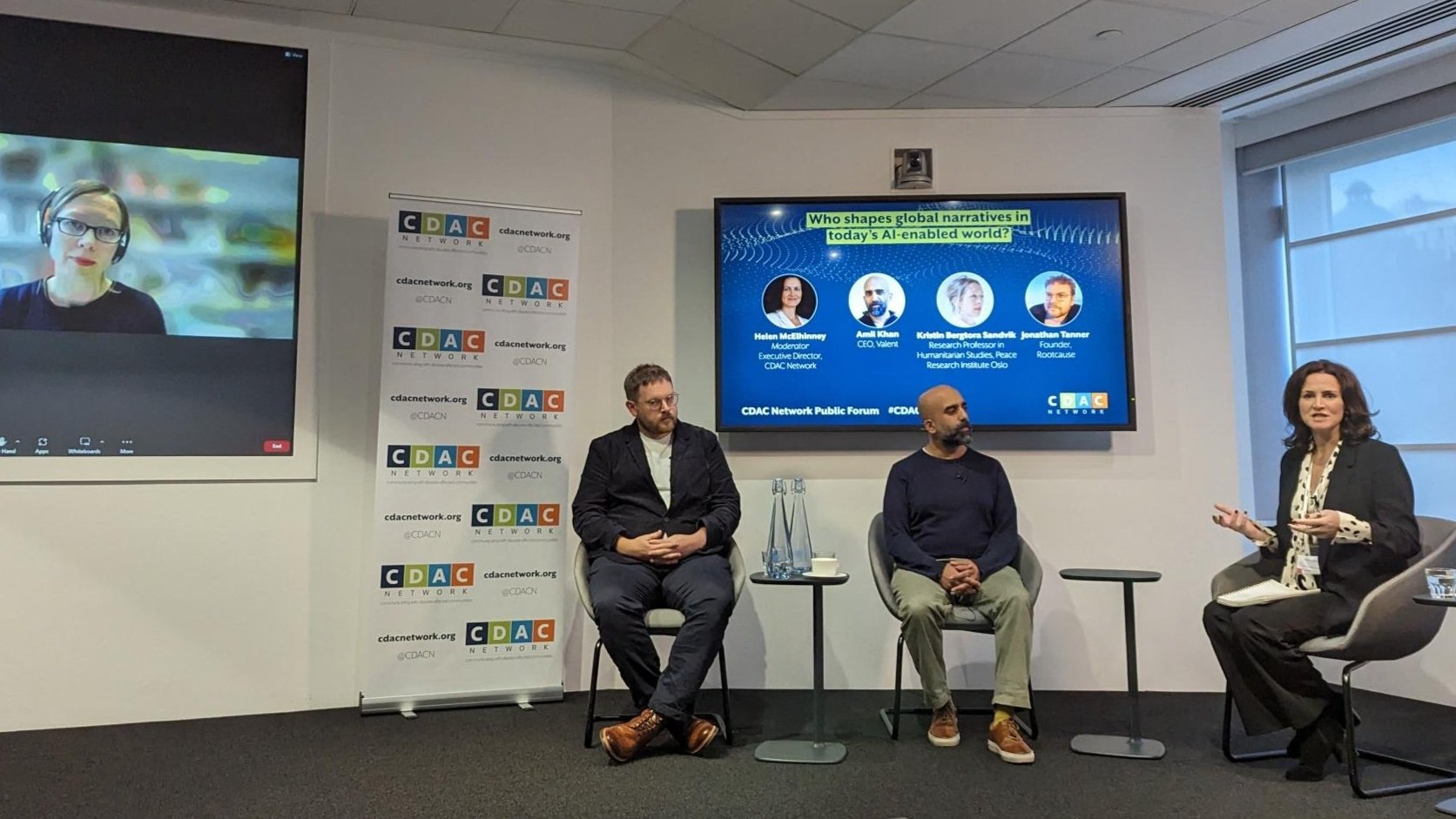
Who shapes global narratives in today’s AI-enabled world – and what do conflict-affected communities and humanitarians need to know?
Artificial intelligence is rapidly becoming a critical factor in global governance, international relations and the information environment, and it is crucial that humanitarians understand its implications in conflict contexts. Listen to our Public Forum panel with Amil Khan, Jonathan Tanner and Kristin Bergtora Sandvik.
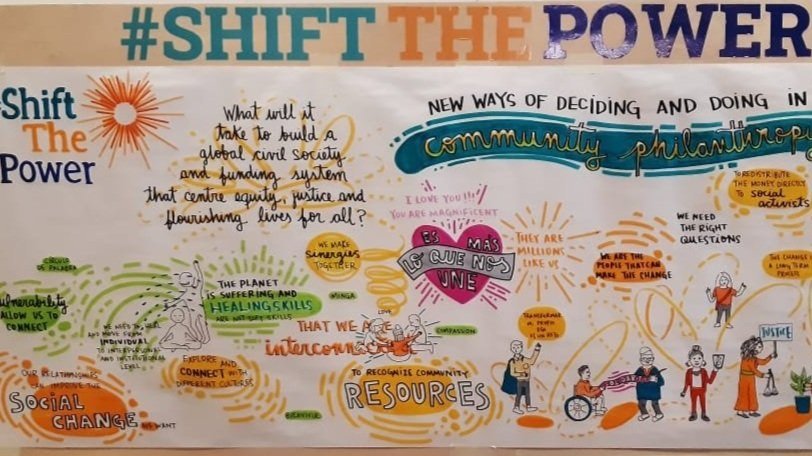
Empowering communities: insights from the #ShiftThePower Summit in Bogotá
Following the 2023 #ShiftThePower Summit in Bogotá, we reflect on inclusion, decolonisation, solidarity, technology and how we tip the balance of power in humanitarian and development decision-making to communities.
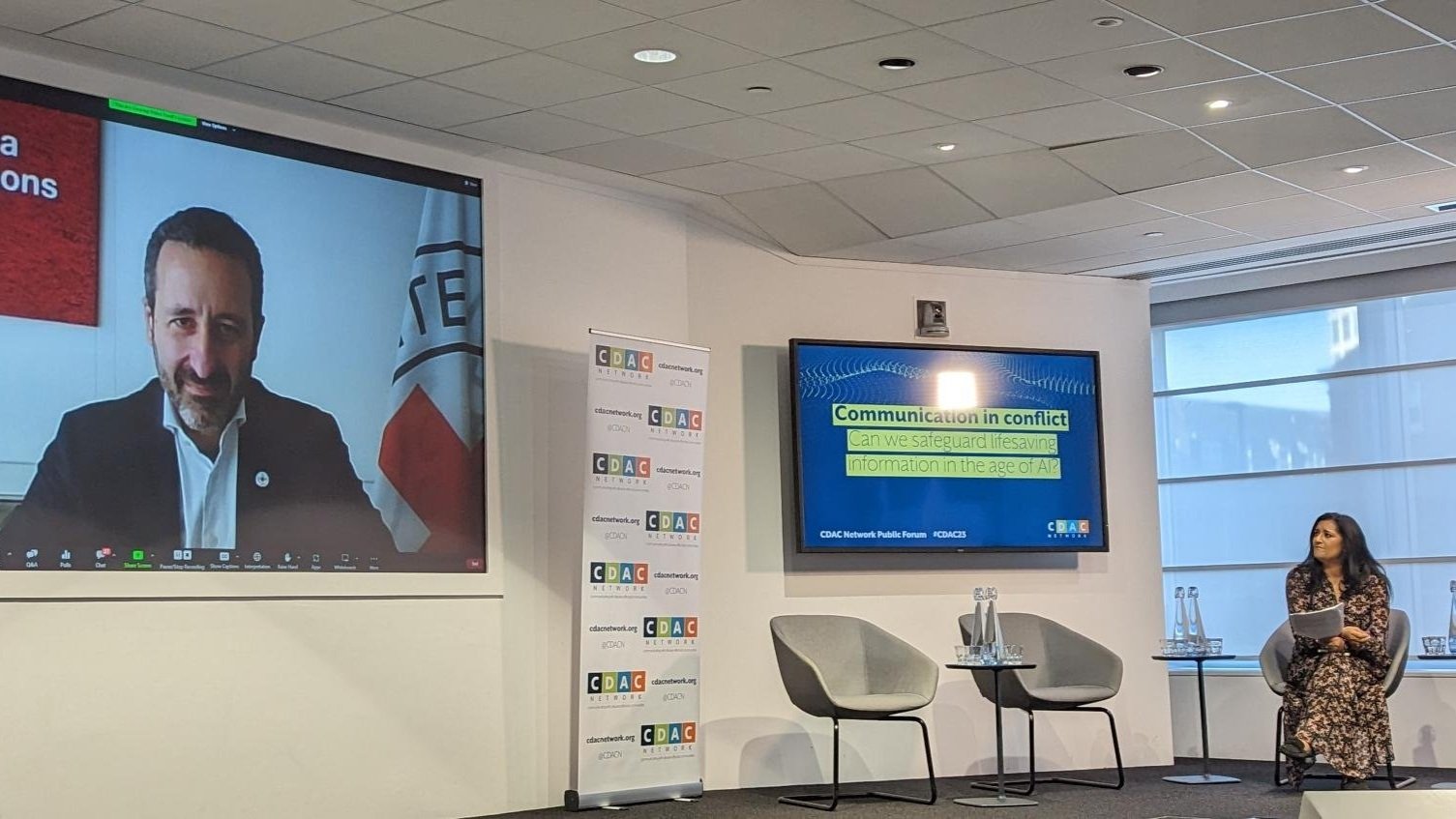
The digital frontier: Robert Mardini on the information landscape in conflict
How are shifts in the digital landscape shaping modern conflict? What role do private tech companies have to play? And how should humanitarians respond? BBC News presenter Geeta Guru-Murthy put these questions to Robert Mardini, Director-General of the ICRCR, at the opening of CDAC Network’s 2023 Public Forum. Listen to their conversation here.
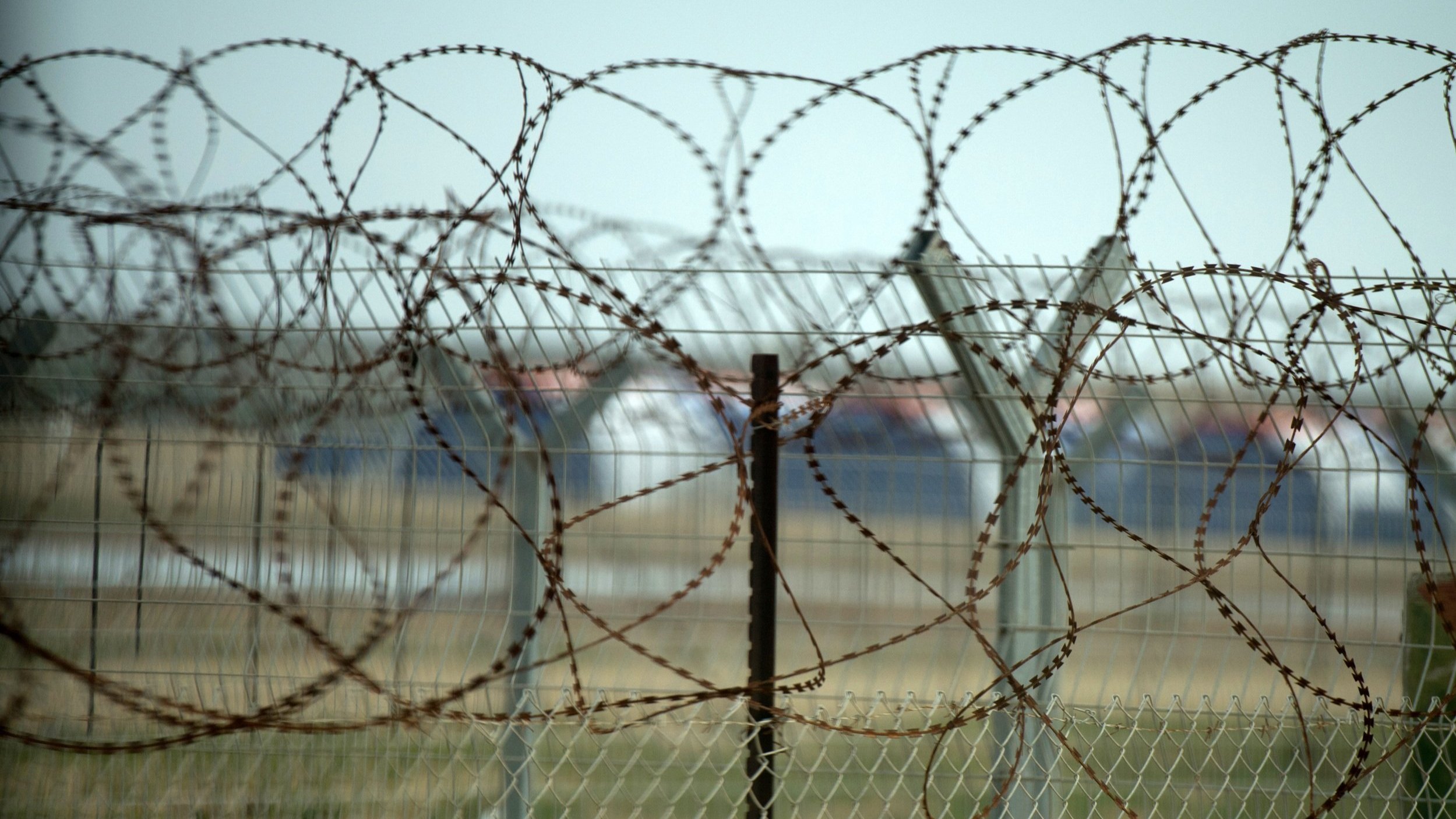
Status of communication and information in Gaza
An update on the status of communication in conflict-affected Gaza, where as of 18 October 2023 people have no accessible means of communicating digitally and lack trusted information to help them make informed decisions.
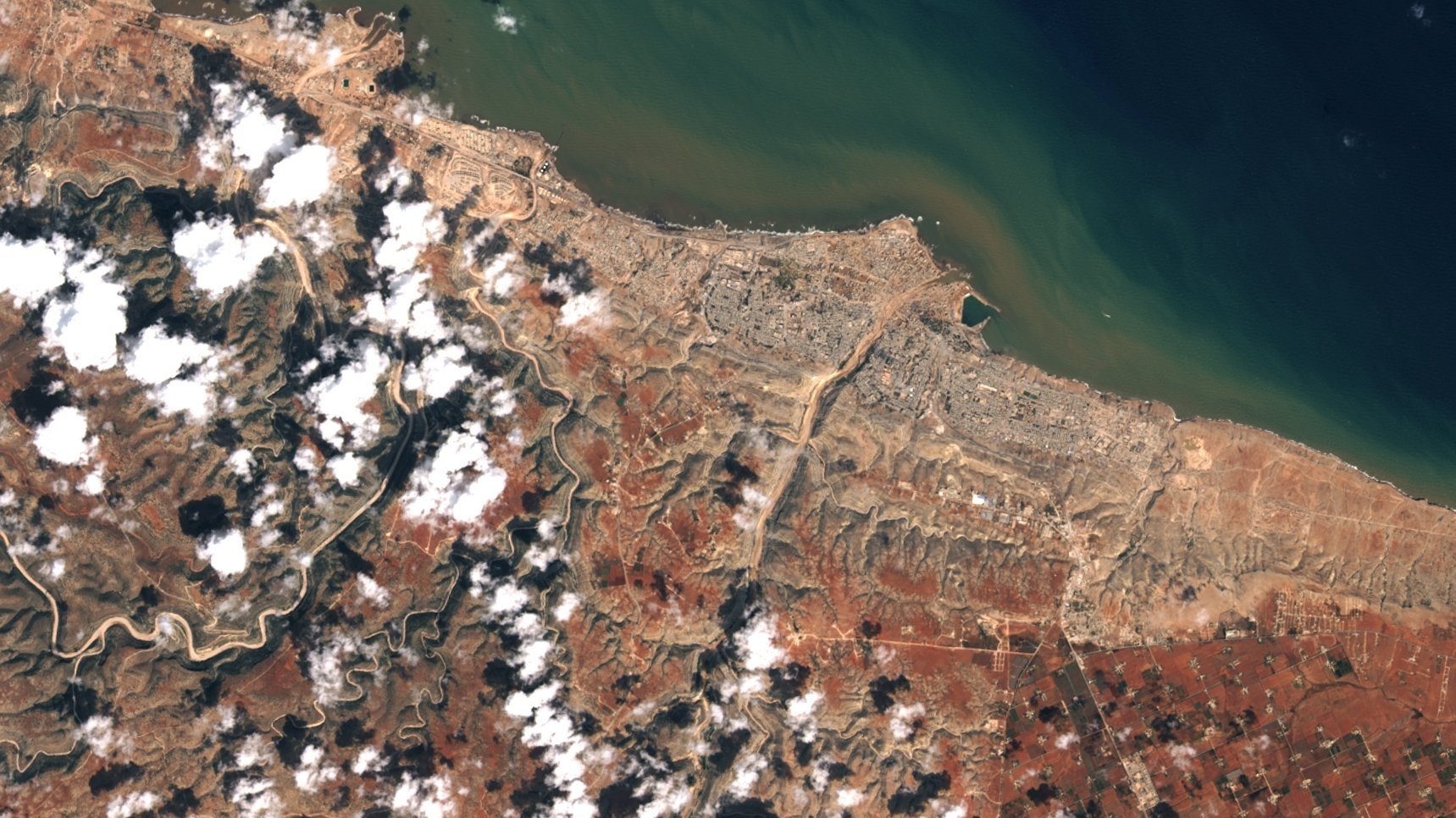
Urgent call to response leadership: advance communication and dialogue in Libya
As the international humanitarian response to the Libya floods ramps up, CDAC Network and its members urgently call for response leadership to advance coordinated communication with affected people.
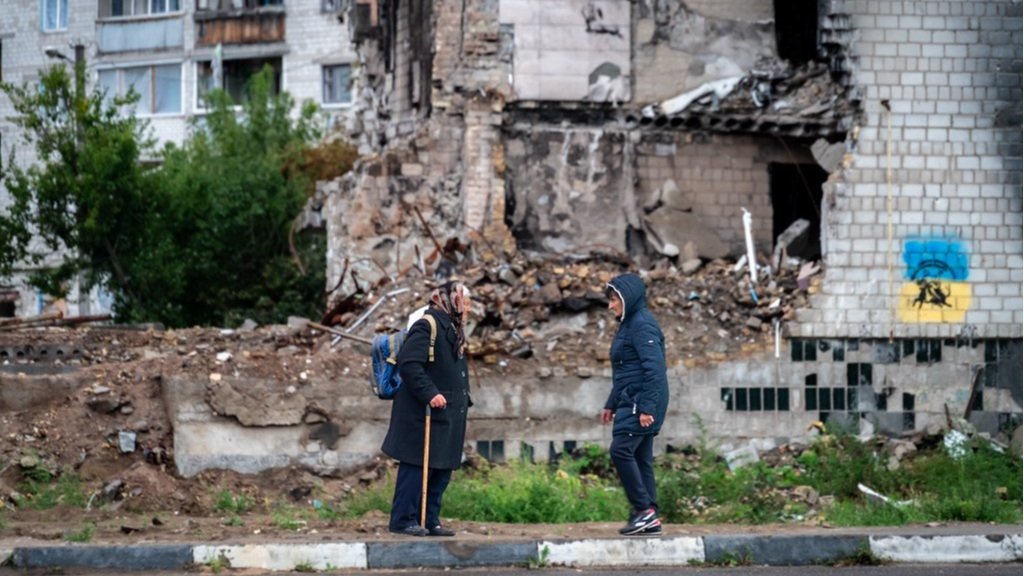
CDAC Network: one year of promoting effective system-wide communication across the Ukraine response
Reflections on a year of CDAC’s project to ensure effective system-wide communication across the Ukraine response by bridging the gap between local and global responders.
